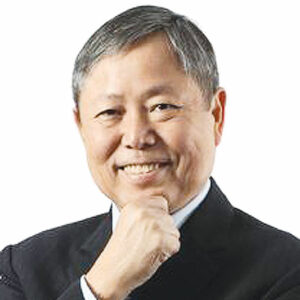Remembering Willie

The chronic problem of tax evasion in general and smuggling in particular has not only meant losing huge revenues but also enervating our institutions. Finance Secretary Ben Diokno thus pays serious attention to tax administration reforms to curb all kinds of tax evasion.
To be sure, tax administration by itself will be insufficient to significantly generate the revenues to realize the medium-term and longer-term development goals. In truth, the country needs new taxes or increased taxes for certain categories to finance post-pandemic development programs and the transition to a green economy. Higher taxation can be done in a fair and equitable manner. For example, policy should tax consumption that harms health (e.g., alcohol and tobacco) and the environment. And tax the rich.
But neither should we diminish the value of tax administration in contributing to overall tax effort, strengthening State capacity, and regaining public trust in the revenue-collecting agencies.
Recently, tax administration has been concerned over smuggling. The issue of smuggling has attracted more attention than other types of tax evasion. Smuggling has become the staple of headline stories. The fact is that all sorts of products are being smuggled. Rice, onions, poultry, pork, seafood, tobacco, liquor, fuel, motor vehicle parts, and counterfeit signature brands are among the most smuggled items.
The estimates of the volume and value of the smuggled products vary widely. This is understandable, for information on illicit trade or criminal activities is incomplete. Although some quarters exaggerate the claims to serve their own agendas, the more reasonable and sober estimates nonetheless suggest that the magnitude of smuggling exacts a significant cost to society.
Reformers acknowledge that the very weakness of our institutions abets tax evasion. Much still has to be done in designing or reformulating the rules and policies to curb tax evasion, including smuggling.
Having laws, even laws with harsh penalties, does not guarantee success in defeating tax evasion. Take the case of the Anti-Agricultural Smuggling Act (Republic Act 10845). It imposes the penalty of life imprisonment and a fine equivalent to twice the fair value of the smuggled product on top of the payment of the taxes, duties, and other charges. Yet, this law, which was passed in 2015, has not deterred rampant large-scale smuggling of agricultural goods. It is a law that has merely become “ink on paper.”
Republic Act 10845 is being amended but mainly to include illicit tobacco products (including manufactured cigarettes, which legally and technically are not agricultural goods) in the list of goods to be covered by the anti-smuggling law.
We do hope that the amendment of the law will not lead to having more ink on paper. The key is to put in place credible, effective enforcement measures that will make likely or more probable the capture or arrest of those engaged in illicit trade.
It is against this difficult background that we will miss Willie Parayno, Jr. who died on Aug. 2.
Willie was the head of the Bureau of Customs (BoC) during the Fidel Ramos administration. He also became head of the Bureau of Internal Revenue (BIR) for three years under the Gloria Macapagal Arroyo administration. He however resigned as BIR Commissioner as a matter of principle in the aftermath of the “Hello Garci” scandal, which allegedly implicated then President Arroyo in the rigging of the 2004 presidential election. Though non-partisan, Willie’s conscience made him join several Cabinet Secretaries and heads of other government agencies (known as the Hyatt 10) who resigned from the tainted Arroyo administration.
Willie was the embodiment of the silent reformer who designed and implemented measures in the BoC and BIR that yielded dramatic results. His legacy should inspire current and future reformers.
Years ago, I wrote columns about Willie’s sterling record. In “Tax Challenge” (BusinessWorld, May 31, 2010), I said that “the momentum for reforms petered out after the principled resignation of Guillermo Parayno, a competent and credible reformer.” Similarly, in “The Truth about Gloria’s Economics” (BusinessWorld, Jan. 16, 2016), I said that “the reforms undertaken by the resigned BIR head, Guillermo Parayno, have been sidetracked.”
What were Willie’s reforms? I narrated some of them in “BIR Reforms: Welcome Success Story for 2003” (BusinessWorld, Feb. 2, 2004).
Willie was a pioneer in the use of information technology (IT). IT was his tool as far back as the 1990s when he headed BoC. Through IT, our revenue-collecting agencies disseminated information to the public, facilitated payments, improved taxpayer compliance, and enhanced transparency.
Willie, too, forged a close partnership with the private sector and civil society to advance “Good and Honest Governance Programs.” The close partnership was done in a manner that the BIR kept arms-length transactions with private parties.
Further, Willie introduced innovation in tax administration. For example, he rolled out “BIR on Wheels” to reach out to hard-to-tax professionals. He was likewise able to get the cooperation of the informal sector like the tiangges through convenient and light ways of tax compliance.
Most critical was how Willie obtained the support of the rank and file, perceived by many (unfairly though) as corrupt. Instead of demeaning and demoralizing the employees, Willie rejuvenated them, and encouraged teamwork towards adopting systems to meet goals and targets.
I cut and paste what I wrote then:
“Mr. Parayno’s specific attributes have served him well in making BIR a success story for 2003. As an engineer, he is very thorough with the processes and systems, but does not lose sight of the general goals. As a psychologist, he knows how to combine carrots and sticks. As a military strategist, he waits for the opportune moment to attack and does not fear taking a tactical retreat. And as a technocrat, he has disdain for political partisanship. He will not use the office to promote the incumbent or to demolish the opposition.”
Although what I wrote about Willie focused on his BIR accomplishments, they were in fact an extension or a continuation of what he did at the BoC. During his stint at the BoC, the agency exceeded targets and had surplus collection. Willie had things done through innovation, automation of processing, and simplification of rules. He earned the sobriquet: “father of computerization.”
He inspired his people at the BoC and BIR, and he made the revenue-collection agencies gain the trust of the public. Some of his followers regard him as the “best Commissioner.”
His various colleagues describe Willie as having competence, integrity, and brilliance. Such a combination of characteristics is rare. And let’s not forget Willie’s vision and love for country. He was magiting — courageous, patriotic, and heroic.
He lived up to the name of his Philippine Military Academy class, the Magiting Class of 1970.
The stories about Willie must be told to different generations of reformers. As former BIR Commissioner Kim Henares said, the goals that Willie envisioned and the reforms he pursued remain a work in progress. And it is our task to continue Willie’s work in progress.
Filomeno S. Sta. Ana III coordinates the Action for Economic Reforms.




